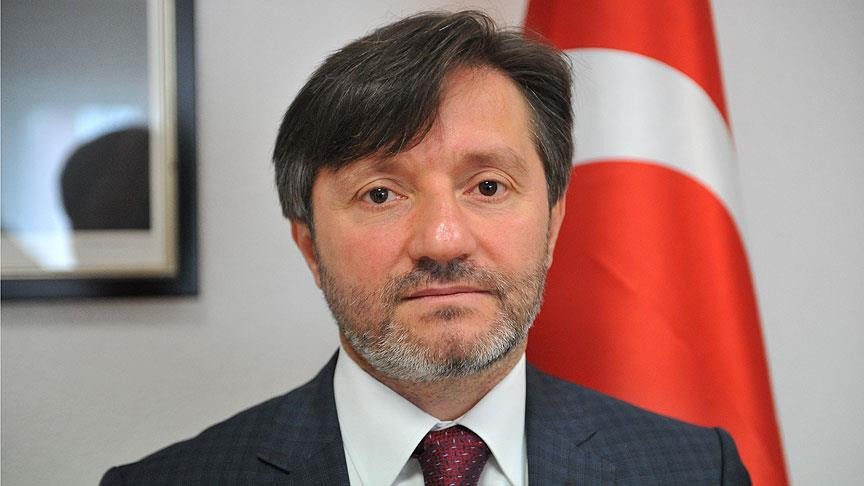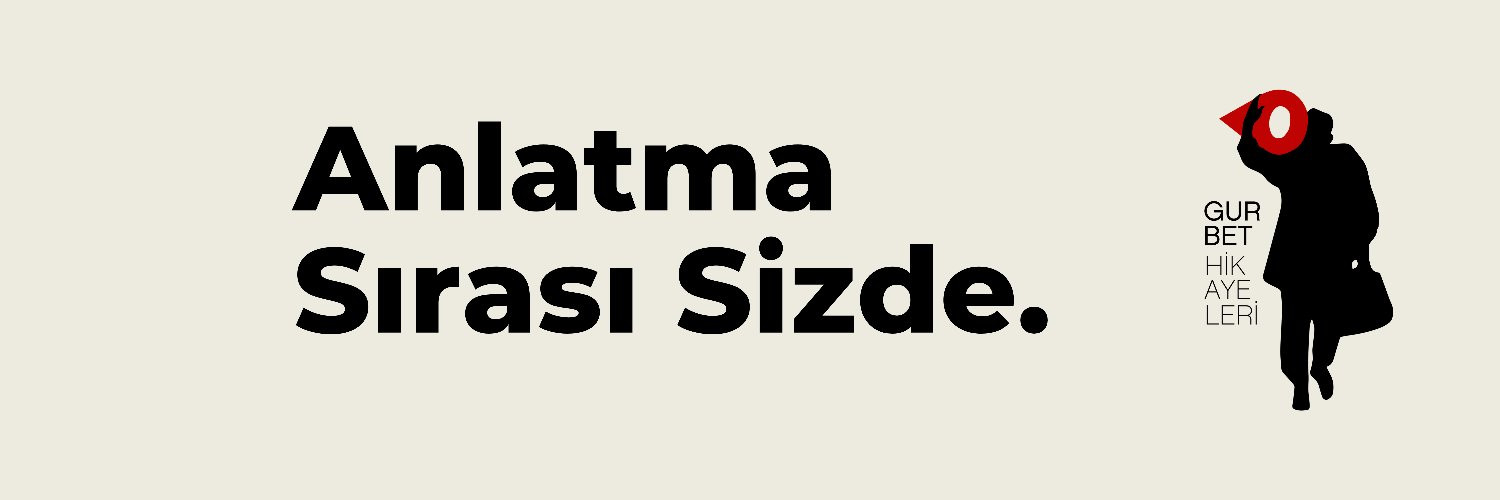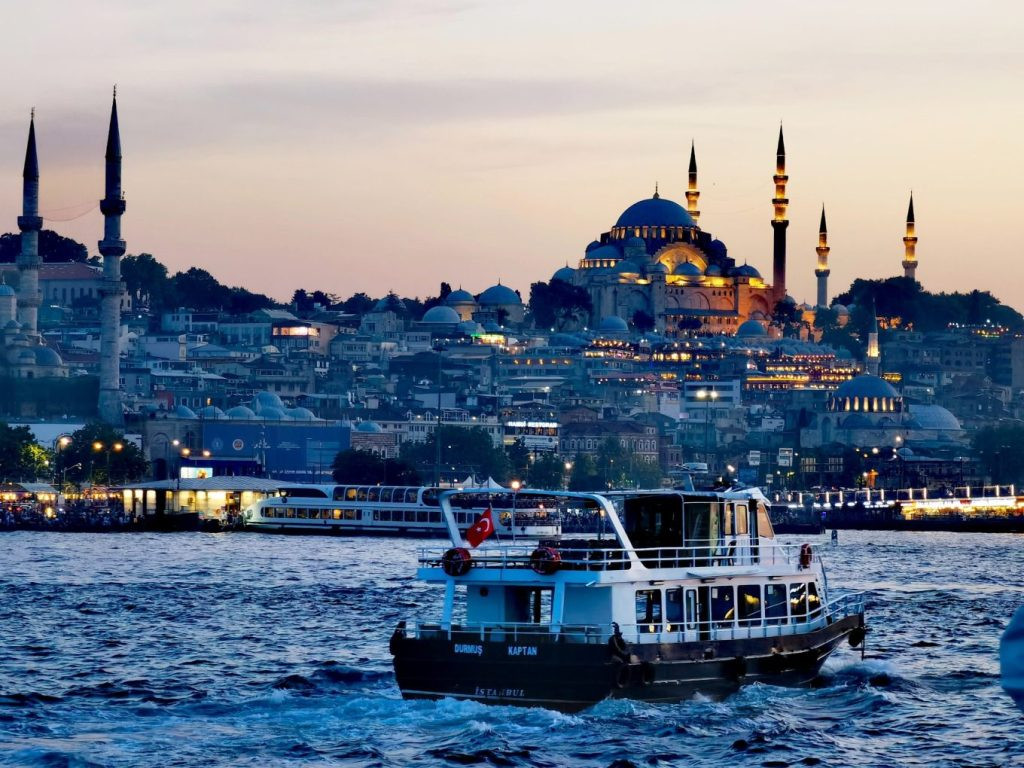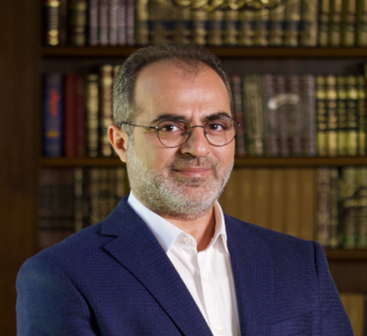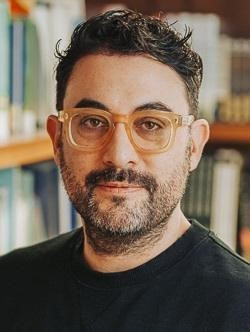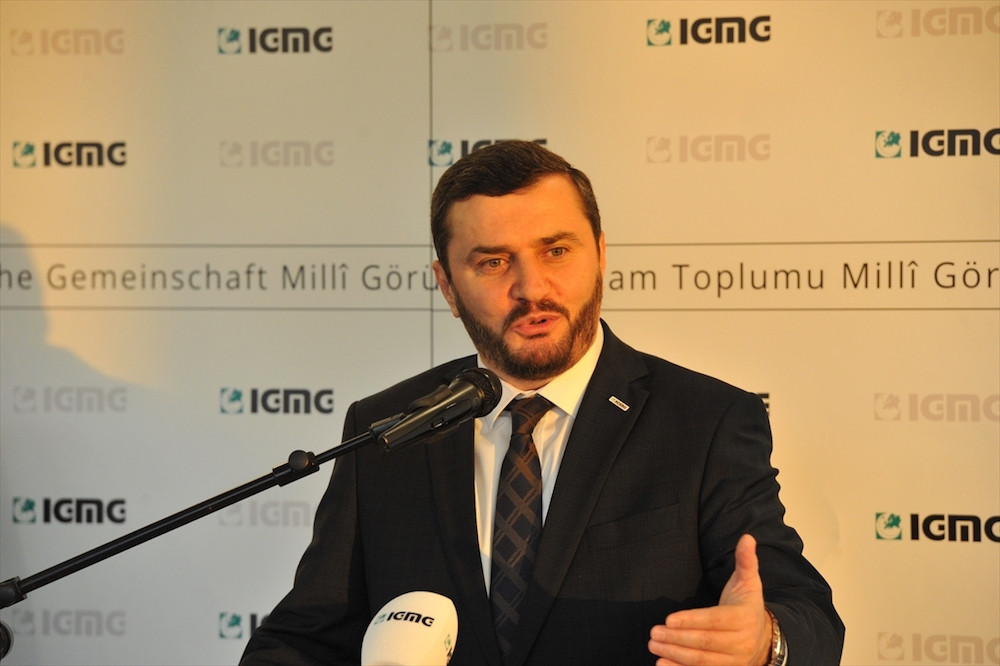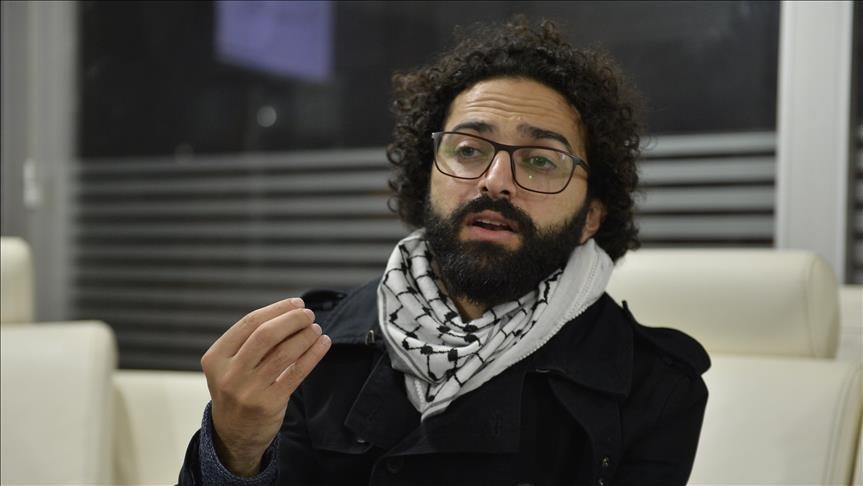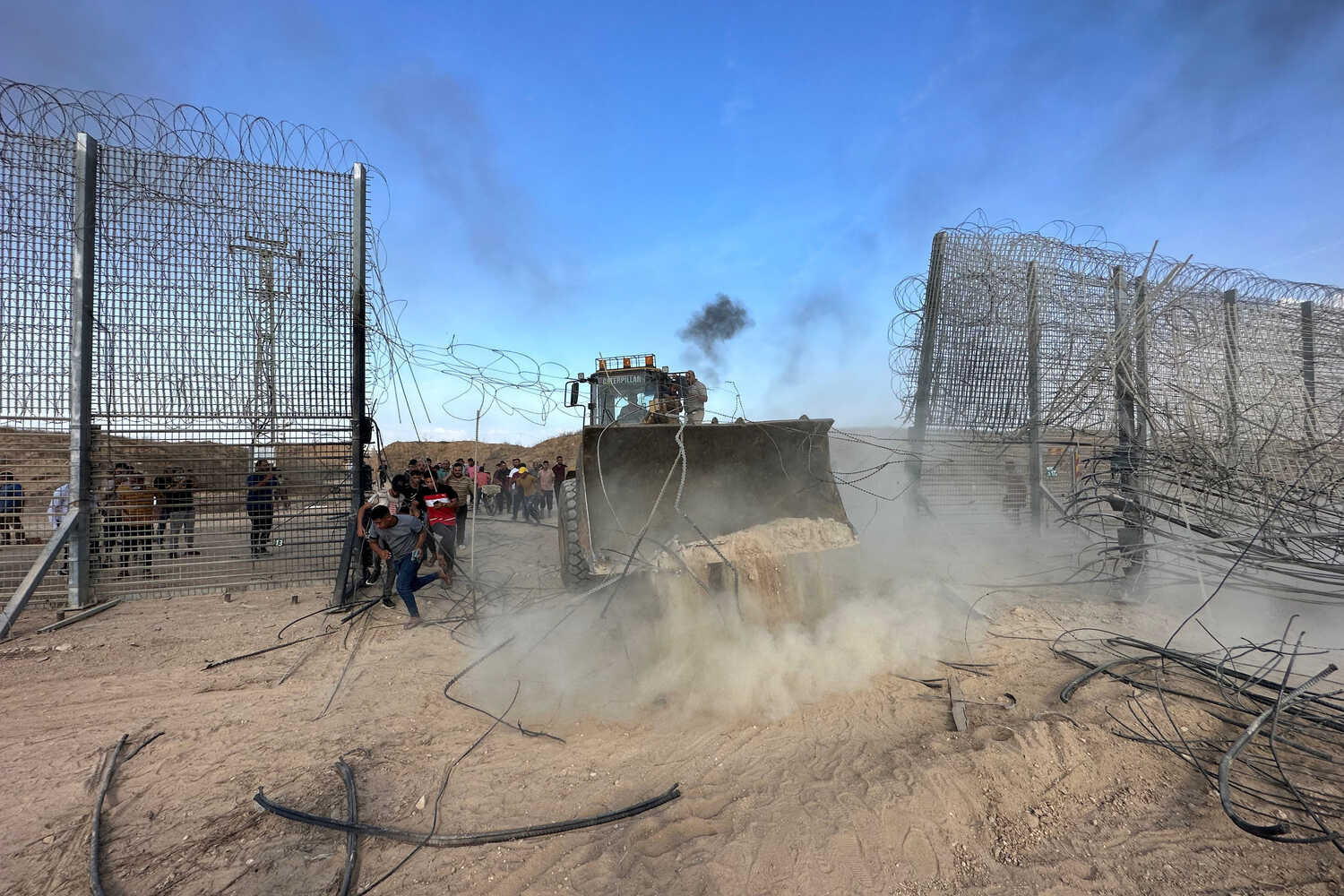
6 Questions about Operation Al-Aqsa Flood and Palestinian Resistance
On October 7th, with the Operation Al-Aqsa initiated by Hamas, Palestinians rose up against Israel, which has subjected them to a human tragedy for decades. During this ongoing period of resistance, we pray to God for the acceptance of the martyrs' sacrifices and for the swift recovery of the wounded. With all our hearts and prayers, we stand with the people of Palestine, the honorable holders of this resistance.
There is a significant amount of misinformation in the mainstream media regarding the current situation in Palestine. In six fundamental questions, we discussed Palestine with experts in the field. We are very thankful to our esteemed professors for their contributions. Hoping that this interview will be beneficial to the readers in providing a clear mind and heart to stand by the oppressed.
What is Hamas and is the Operation Al-Aqsa Flood a justified operation?
Dr. Azzam Tamimi, Palestinian Academic and Political Activist
Hamas, which is the acronym for the Islamic Resistance Movement, came into existence in December 1987 upon the eruption of the Palestinian uprising (Intifada). It was born out of the Muslim Brotherhood of Palestine. The reason for this transformation was the dire situation in Gaza at the time. The Muslim Brotherhood was a huge grassroots organisation focused primarily on religious education and social reform. The young generation in the movement were not content, as the conditions under occupation were getting worse day after day. They pressured the leadership to join the civil disobedience and other forms of resistance organised by the leftist and so-called nationalist factions. The killing of Palestinian workers on the 8th of December 1987 was the trigger not only for the intifada but also for the transformation of the Brotherhood into Hamas. Initially, Hamas resorted to passive resistance but gradually, and as the Israeli occupation authorities responded more brutally and cracked down severely on activists, young men started planning attacks with knives on Israeli soldiers, then managed to snatch rifles from Israeli soldiers. They eventually started staging attacks on occupation troops and even kidnapped some of their of soldiers. This marked the birth of the military wing of the movement called Izziddin Al-Qassam Brigades, named after a Syrian scholar who came to Palestine to join the Palestinians in their struggle against British colonialism and was assassinated by the British in 1935.
When a Jewish settler called Baruch Goldstein massacred Palestinian worshippers in Al-Ibrahimi Mosque on 25 February 1994 (the 15th day of Ramadan), Hamas responded by resorting to martyrdom operations (known in the Western media as suicide bombings). Later on, this tactic was abandoned and Hamas started manufacturing home-made rockets. The movement has been able to make use of modern warfare technology and equip itself with an arsenal of drones and other tools.
The recent attack on 7 October 2023 involved the use of gliders among other things. But the skill with which the movement managed to penetrate or paralyse Israel’s electronic surveillance was surprising. What was also surprising is the secrecy with which the operation was conducted. This shows that Israeli intelligence could not infiltrate the units who had been preparing for the operation for months. This is despite the existence within the Gaza Strip of many spies who workeither for Israel or for the Palestinian Authority in Ramallah.
What we are seeing in Palestine is a war of liberation that has been going on for 75 years. The Zionists started it by invading Palestine and dispossessing its people in 1948. Since then, the state the Zionists created on the remains of Palestinian homes, which they called Israel, did not stop tormenting the Palestinians and committing all sorts of war crimes against them. The Palestinian people are no different from the Vietnamese people, who were called terrorists by the American occupiers, or from Nelson Mandela, who was called a terrorist by the Apartheid regime and its supporters, such as Margret Thatcher and Ronald Reagan, or from the Algerian resistance movement, which was called terrorist by the French colonial authorities. If one party inflicts pain on another, it’s only natural that the victim will try and return the favour. Yet, one has to be careful because much of what the Zionist propaganda is claiming about Hamas atrocities is not true. The claims of killing children and raping women are fabricated. Hamas fighters would never commit any such acts because they are forbidden in Islam.
Is there a legal basis, according to international law, for classifying the Al-Aqsa Flood initiated by Hamas and the Iron Swords operations conducted by Israel in response as acts of self-defense?
Assoc. Prof. Dr. Ali Osman Karaoğlu, Yalova University, Department of International Law
In 1948, the Palestinian territories were de facto divided into two as a result of the conflict that emerged when Britain left the mandate administration. No major objection was raised by the states to the Armistice Line drawn in 1949. This situation continued until 1967. In 1967, as a result of the famous Six Day War between Israel and the Arab States, East Jerusalem, the West Bank and Gaza were occupied by Israel.
The invalidity of the 1967 and later occupied territorial gains has been stated in many UN resolutions. In this sense, East Jerusalem, the West Bank and Gaza are referred to as "Occupied Palestinian Territories" in both UN Security Council and UN General Assembly resolutions. Although Israel withdrew militarily from Gaza in 2005 and removed the settlements in Gaza, it did not end the occupation. In this sense, the blockade of Gaza from land, sea and air means that the occupation partially continues. As a matter of fact, according to the Red Cross Organisation (ICRC), which conducts the most qualified studies on International Humanitarian Law, Gaza is still under occupation. According to the ICRC, although Israel does not have a permanent presence in Gaza, the land, air and sea blockade shows that it has a certain level of effective control, and in the case of Gaza, Israel's obligations arising from the occupation continue. The existence of political conflicts between Hamas and the PLO does not exclude Gaza from the Occupied Palestinian Territories. Palestine's right to self-determination includes Gaza. In this sense, the de facto control of Gaza by Hamas does not affect the right of the people of Gaza to self-determination. This right also includes the right to self-defence against the current Israeli occupation. Gaza is not a separate state or country.
The UN General Assembly Resolution titled "Definition of Aggression" (Resolution No. 3314) provides examples of actions that are considered as acts of aggression. According to this resolution:
"a) The invasion or attack by the armed forces of a state on the territory of another state, or any military occupation, however temporary, resulting from such invasion or attack, or any annexation by the use of force of the territory of another State; b) Bombardment by the armed forces of a State against the territory of another State or the use of any weapons by a State against the territory of another State; c) The blockade of the ports or coasts of a State by the armed forces of another State..."
These actions are considered as armed aggression.
This provision also applies to countries like Palestine, which have been granted the right to establish a state within the framework of the principle of self-determination. In this sense, it can be said that the right to legitimate self-defense continues in the face of an ongoing occupation. Israel occupied Palestinian territories in 1967 and has not ended the occupation. As long as the territories of Palestine remain under occupation, Palestine has the legitimate right to self-defense to reclaim its land until a permanent peace is achieved between the parties. Operations such as Operation Protective Edge or Operation Cast Lead should be considered within the broader context. Israel, as it has continued its occupation since 1967, is considered the "aggressor," while Palestine is in the position of "legitimate self-defense." These designations persist as long as the occupation continues. Responding to legitimate self-defense does not constitute legitimate self-defense. However, regardless of these debates, warring parties must fully comply with international humanitarian law rules and protect civilians, independent of the legality of their operations.
Did Hamas target "civilians" with the Operation Al- Aqsa Flood launched on 7 October?
Assoc. Prof. Dr. Tariq Dana, Doha Institute for Graduate Studies Conflict Management and Humanitarian Action
Despite Israel's systematic genocide, the international media has interpreted Hamas's attack on October 7th as "targeting civilians." What is your assessment of this situation?
First, Hamas officially announced it had no intention to target civilians. The operation, named “Al-aqsa Flood”, was designed to target military bases and control Israeli settlements. According to a recent Al-Jazeera interview with Salah Al-Arouri, the instructions from the outset for Al-Qassam fighters were to adhere to Islamic guidelines in warfare and the International Law of war. These guidelines include not killing civilians, women, children, and the elderly, and not harming civilian property, focusing solely on combat against soldiers and armed individuals. There have been several videos circulated online that confirm his statement, whereby Hamas fighters avoided civilians, especially women and children, and facilitated their escape from these areas.
However, what seems to have happened, according to Al-Arouri, is that some residents of Gaza, upon hearing about the collapse of the electronic fence that separates Gaza from Israel, rushed to enter the area, leading to some chaos. As a result, some Al-Qassam fighters were forced to engage with security guards and armed individuals in the settlements, leading to civilian casualties.
Second, the status of "civilian" in Israel is highly peculiar, primarily due to the fact that the majority of Israeli citizens are actively involved in the military service. As such, the line between military and civilian status becomes blurred, complicating the ethical and legal considerations involved in conflict. In addition to serving active duty, many Israelis remain part of the reserve forces for an extended period post-service, further muddying the waters in terms of their classification as civilians or combatants. Israeli society is highly militarized, both culturally and practically. The ubiquity of firearms and military paraphernalia in public spaces, along with the normalization of military elements in civilian sectors, creates a peculiar socio-political landscape that challenges the regular understanding of what a civilian is.
The inconsistency in the treatment of Israeli and Palestinian lives by many in Western media and policy-making circles stands as a glaring example of hypocrisy, particularly for those who often espouse the values of human rights and civilian protection. This double standard is deeply disturbing for any decent human being; it suggests that the life of one Israeli is somehow more valuable than the lives of hundreds of Palestinian children. This skewed perspective does more than just cloud the narrative; it implicates the West in the Israeli systematic acts of ethnic cleansing and even genocide currently unfolding in Gaza, all of which are disturbingly presented under the illusive banner of "Israel's right to defend itself."
What is the fate of the current conflicts? How feasible is a two-state solution?
Sami Hamdi, Geopolitical Risk Expert
The only obstacle at the moment to any de-escalation is Netanyahu. Netanyahu is under immense pressure to resign as polls continue to show that Israelis blame him and his policies for bringing about the greatest threat to Israel since 1973, and therefore believes that prolonging the war can buy him time to avoid facing the Israeli public. At the moment, I think there are intense negotiations to bring about a ceasefire. Egypt is resisting US attempts to open the border crossing to allow Israel to push the Palestinians into Sinai. Iran is threatening to open new fronts. Qatar and Turkey and in contact with the Palestinians to negotiate hostage exchange as a prelude to de-escalation. The problem for Netanyahu however is that a ceasefire in these circumstances would cement the view that the Palestinian cause is very much alive, and is not dying (as he suggested at the UN when he raised a map of the region in which he erased Israel). Netanyahu was convinced that the Palestinians were at their weakest because Muslim states were normalising at their expense. However, he has been humiliated at the fact that the Palestinians have launched the greatest threat since 1973 at a time when everyone thought the cause was dying. I don’t think a two-state solution will emerge. However, the idea that normalisation of ties can happen without talking to Palestinians is no longer seen as an option, even among Israeli allies. This is a major blow to Netanyahu and his plans for annexation of more territories.
Can international aid reach Gaza? How should international law be applied in order for humanitarian aid to reach Gaza?
Hüseyin Oruç, İHH Trustee Deputy Chairman
The Egyptian Ministry of Foreign Affairs has announced that the Rafah Border Crossing is being kept open. International aid to the besieged Gaza Strip has been diverted to Al Arish Airport in the northern Sinai Peninsula. The Israeli military has targeted and bombed the area around the Rafah Border Crossing, which provides access to Egypt for the Gaza Strip under blockade. States have now started to deliver their aid to Egypt. Turkey delivered 3 airplanes to the region today. It is not yet clear how the aid will be delivered to the interior of Gaza, but the first aid will be delivered here to the people who will take refuge in Egypt for humanitarian aid. As IHH, we are trying to organize our aid both from inside and outside Gaza. We are going through a difficult period in terms of the delivery of humanitarian aid. Israel's bombing of the ground without targeting makes humanitarian aid work very difficult. Even schools, hospitals, health centers and universities are targeted and bombed.
Israel's blockade of Gaza has caused a major humanitarian crisis with the latest attacks. In just a few days, more than 1,500 Palestinians have lost their lives and more than 300,000 have been displaced. Israel is not only displacing Palestinians, it is also committing war crimes with unprecedented practices throughout human history, trampling on even the most basic principles of human rights.
According to the UN report, Gaza has only two weeks of food and water left. Despite this, Israel cuts off Gaza's water supply and bans the entry of medicine and food into Gaza. Israel has completely cut off Gaza's electricity. Life in Gaza is plunged into darkness as fuel is running out. Hospitals and ambulances were targeted in the attacks and the health system was completely destroyed. Tons of bombs were dropped. The whole city is bombed from the air without discriminating civilians. 60% of those killed in the attacks are elderly, women and children.
Israeli authorities are committing war crimes in the Gaza operation by using weapons that inflict severe pain and suffering on the physical health of people. Israeli authorities committed war crimes in the Gaza operation by blocking humanitarian aid and preventing the work of those seeking it. The Israeli authorities committed war crimes by attacking and destroying places that should be protected (mosques, churches, schools, hospitals). Israeli authorities committed war crimes by forcing the people of Gaza to emigrate. Israeli authorities committed war crimes by destroying the property of the people of Gaza. In addition to investigating war crimes committed in Gaza, the International Criminal Court (ICC) should also consider the crime of apartheid against humanity as part of its ongoing investigation in the Occupied Palestinian Territories.
While Israel ignores all UN resolutions, Israel must be responded to with sanctions, not just reports or condemnations. Israel has so far ignored more than 1000 UN calls and warnings. According to the Geneva Convention, we have the right to lift and transport ships. The UN should evaluate these demands correctly.
In these increasingly violent conflicts, according to broadcast and video data obtained from media organs; 'war crimes' are being committed, innocent people's property is being seized, indiscriminate attacks are being carried out using banned weapons and bombs, the Palestinian people's basic human rights are being disregarded by cutting off water and electricity and preventing their access to food and health services. With all these acts, Israel violates international law. Israel must be immediately prosecuted internationally for this war crime.
Why do international organisations around the world remain silent about the genocide committed by Israel in Palestine?
Prof. Dr. Berdal Aral, İstanbul Medeniyet University, Department of International Relations
The international community's silence regarding the genocide in Gaza is not actually an unusual situation. This is because for decades, the suffering of Palestine, the occupation of its lands, and the commission of all kinds of crimes against humanity and war crimes in the country have been well known, yet no steps have been taken in this regard, unfortunately. Primarily, one could expect the United Nations to make a decision, especially considering that the Security Council, the organization's enforcement arm, is authorized to do so. Security Council decisions are binding in principle, and it has the possibility to make a decision in this matter if it wishes. However, as is well known, one of the five permanent members of the Security Council, the United States, never allows any decision against Israel in any way and has vetoed dozens of draft resolutions to date. Otherwise, theoretically speaking, all kinds of military operations against Israel should have been carried out until now. Theoretically, a comprehensive sanctions decision should be made. However, the United States, especially in this regard, is preventing the adoption of any effective decision against Israel, and this is still the case. A few days ago, the Security Council discussed a presidential statement. The United States sought to condemn the Palestinians and tried to portray them as a terrorist organization committing crimes against humanity. However, it could not obtain the unanimity it wanted in this matter. Russia, in particular, opposed it, and as a result, such a draft resolution did not turn into a presidential statement.
The United Nations General Assembly, as another institution here, has not yet come into play. The UN General Assembly has the authority to make decisions on all matters concerning the international community, and its decisions are not binding. In the past, we know that from time to time, it has taken some resolutions related to the Palestinian issue, affirming the self-determination right of the Palestinian people, condemning the Israeli occupation, or opposing, for example, the Judaization of Jerusalem. But the real question is, were these resolutions implemented? Of course, they were not implemented. Therefore, we are faced with such a deadlock. The primary purpose of the United Nations, as an organization, was not so much about preventing genocides or interventions in small countries, but rather about preventing conflicts between great powers. Furthermore, influential powers within the United Nations organization, especially the permanent members, or countries like India, actually have issues with the Islamic world. These countries do not want the Islamic world to have a unified will; they are strongly against its integration and are ready to take all kinds of measures to prevent it.
Another issue is the lack of a globally influential actor in the Islamic world. The Organization of Islamic Cooperation is not a very influential actor. We cannot talk about a very powerful Muslim country that could have a global impact like Russia or China. It is necessary to talk about a serious power vacuum here. On the other hand, we see that the dominant powers are looking at Palestine with a very crude perspective, without considering its historical background, and they do not display a resolute stance against Israel. In fact, in my opinion, most of them benefit significantly from Israel's presence in the region. Because Israel's presence is a hindrance to the unity of the Islamic world and the formation of a stronger internal cohesion. It also serves as a gendarme in the global imperialist order. This is, of course, in the interest of countries like China, Russia, and India. It should also be added that almost all major powers have problems with Muslim minorities. Especially the United States, which has declared a "war on terror." Since 2001, the U.S. has officially launched operations to eradicate resistance organizations in the Islamic world. For a long time, it has been declaring all resistance organizations as terrorists and cracking down on them. Today, China has adopted the same method. For example, those who are fighting for identity and freedom in East Turkestan are labeled as terrorists. The same applies to Kashmir because India is an occupying power. Therefore, it does not seem very reasonable to expect the dominant powers within the UN or a country like India to stand with the Islamic world against the genocide in Palestine.
If we talk about some of the organizations established within the Islamic world, one of them is the Organization of Islamic Cooperation (OIC). The fundamental problem with the OIC is as follows: it already makes some questionable decisions that may not have binding implications, and whether these decisions will be implemented remains a constantly ambiguous issue. There is no mechanism for binding sanctions regarding the implementation of these decisions in the Islamic world. Even more unfortunate is the fact that most of the countries that constitute the Organization of Islamic Cooperation are far from defending their rights and interests. The majority of these countries are actually authoritarian regimes, remote from their people, and have very special relationships with the United States, the United Kingdom, France, or even Russia. They also have various issues among themselves. They are not successful in resolving these issues or maintaining control. Therefore, countries belonging to the Islamic world are unfortunately in a very fragmented state at the moment. Many of these countries have already entered into a normalization process with Israel, particularly over the Arab world. Most recently, Saudi Arabia hinted that it could be a part of this process. Thus, Israel has already initiated the normalization process with regimes that are willing to establish relations with it and show submission.
Now, let's talk about the Arab League. What I'm going to say about the Arab League is not much different from what was mentioned about the Organization of Islamic Cooperation. Here, the problem may run even deeper. The Arab League was actually founded in 1945 with the aim of strengthening the struggle of the Arab world, especially against colonialism, and also to fight against Zionism. It envisaged cooperation in economic, political, social, cultural, and military fields. They were planning to establish a joint army in 1950. However, this has not happened to this day. This is because we still cannot talk about a high level of trust among them. In 2015, they formed a United Arab Force, but it is not under a single command. However, the goal here was not to engage in anti-imperialist struggles or to support the Palestinian cause.
We should also mention the Gulf Cooperation Council (GCC). This organization was founded in 1981 and consists of six member states from the Gulf region. They are attempting to create a kind of customs union and foresee cooperation in all areas. They have been gradually deepening their integration. In 1980, they established a small military force called the Peninsula Shield Force. The purpose of this force is not to advocate for the Palestinian cause or engage in anti-imperialist struggles; on the contrary, for example, in 2011 during the Arab Spring protests for freedom and justice in Bahrain, it was used against those who took to the streets. Some members of this organization, led by Saudi Arabia, came together to carry out an illegal military intervention in Bahrain. In 2014, they also participated in interventions supposedly for humanitarian purposes in Syria against ISIS, which were orchestrated by Western hegemonic powers.
The genocide in Gaza, which is genocide because the Zionist military forces are deliberately and intentionally trying to destroy the Palestinians in Gaza. They use forbidden weapons without distinction between soldiers and civilians. In particular, they bomb civilian settlements, schools, hospitals and houses and buildings. They even try to prevent the delivery of aid. According to the Genocide Convention, genocide is the intentional, wilful, partial or total extermination of a certain group of people just because of their religion, identity, ethnic identity, national identity. Israel is doing this very clearly. Because the goal behind these terrible attacks is to evacuate Gaza to a large extent and to massacre the people there as much as possible. Unfortunately, what should be done in this situation is not being done. The Security Council met a few days ago, but the US approach here is to brand Hamas as a terrorist organisation and at the same time to condemn it on the grounds that it has "carried out a kind of ethnic cleansing" and "massacred civilians". But there was no presidential decision on this issue. This is because some important countries, such as Russia, opposed it in the first place. The issue has not yet come to the General Assembly. They speak on behalf of the UN and condemn what has been done. Maybe they cannot call this genocide as "genocide", but they criticise what has been done and invite Israel to restraint. In 2002, the International Criminal Court was established specifically to investigate crimes against humanity, war crimes, genocide and crimes against peace. In 2015, the State of Palestine became a member of the ICC. The Court rejected Israel's claim that Palestine is not a state.
There is also a United Nations Human Rights Council. There are 47 states on this council. This human rights council has established a commission of inquiry into the genocide and crimes committed in Palestine, in Gaza. At the moment, this investigation commission is busy writing its report. It is busy observing the events. Of course, even if the Human Rights Council, for example, accepts that genocide has been committed there, this decision will not be binding, but at least it will have a serious weight in the international community. The Organisation of Islamic Cooperation has not convened yet. Iran and Iraq called for an urgent meeting a few days ago. But this meeting has not been held yet. The Arab League convened a short while ago. The Arab League has decided to condemn both sides. The conclusion is that it is out of the question for the Arab League to take any kind of sanctions against Israel. This is the situation. We hope that this crisis will witness some developments that will contribute to Palestine's struggle for freedom before our Palestinian brothers and sisters suffer a greater victimisation.
